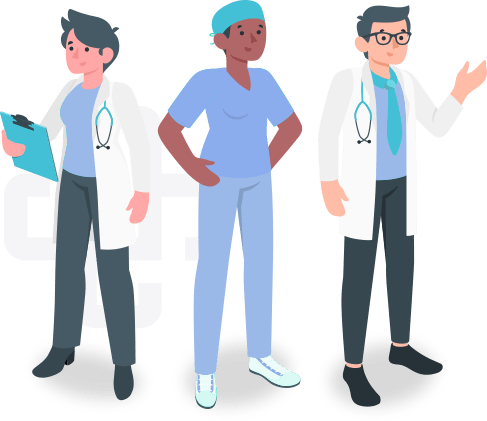
FAQ Related To Spine
Treatment And Specialist
Frequently Asked Questions
Do not do forward bending postures and do not do yoga or exercise if you have too much pain. Do not sit in a chair continuously for too long. After taking a half-an-hour interval, one should take a walk for a while. Do not carry any heavy objects. Even if you lift some heavy things, then bend the knees so that the waist is not stressed
Treatment is done for humans, MRI and X-rays are not. There is no cure unless the patient is fully examined.
Back pain is a very common problem which usually affects 85% of people in India at some point in their life. But only 20 percent of these people need to be examined for back pain.
There are many causes of back pain like impact on the joints of the waist, muscle sprains, muscle weakness, incorrect sitting posture, and waist flexion work. This is a common and easy-to-fix problem. There are some more serious reasons as well like spinal cancer, infection, fracture and spinal cord slipping.
Nowadays, we have to sit for lengthy durations and we give less to no time to exercise. Throughout the day, we bow down to mobiles. Whether it is the work of women in the home or the people working on computers in office. We do all the work by bending our neck and the waist. Along with all the above mentioned factors, the lack of nutritious food also makes our bone and muscle become weak. For this reason, back pain and spinal problems are very common nowadays.
Commonly occurring back pain is cured with time and does not require any special treatment. But, if the pain does not subside, and you notice other symptoms like pain in the legs, numbness of the feet, tingling, difficulty walking or standing, pain while walking and hoisting the chair, getting up, it means you have severe symptoms of spinal cord pain. Do not take it lightly and get it tested immediately. There is a need to consult a spinal specialist because Spinal diseases are of many types and if not treated at the right time, permanent problems can occur. To see them, and understand them, your doctor must have full knowledge of it. In our view, you should consult a spine surgeon in such a problem, who specialises in spinal problems.
Thank you for asking this question. Nowadays we have to sit for a lot of time in our routine and we give less time for exercise. Throughout the day, we bow down to mobiles. Whether it is the work of women in the home or the computer in the office, the men on the table chair, we do all the work by bending the neck and the waist. With this, our bones and muscles become weak due to lack of nutritious elements in our food.
Since spinal problems have increased considerably, orthopaedic or neurosurgeons are people who specialize in spinal cord treatment for all of these diseases and start performing the treatment for the spine. Spine surgeons usually see spinal diseases abroad or in big cities of the country.
If you have pain other than back pain, leg pain, numbness in the feet, tingling in the feet, difficulty in walking or standing, pain while walking and having a chair, difficulty in getting up, or having a twisted waist. All these are severe symptoms of spinal cord disease. Do not take them lightly and get them tested immediately.
Sciatica is a term used to describe nerve pain in the leg that is caused by the compression of the sciatic nerve. This is a very common problem that occurs when there is pressure on the veins coming out of the lower 2 lumbar bones of the spine. In addition to pain, it can also cause tingling and numbness. In this case, you should check and treat immediately. If there is a problem in urinating or even drinking, then it is an emergency.
As I said, the treatment is based on the cause of the spinal cord pain. The spinal cord sometimes breaks or subsides into osteoporosis if it is weak. In such a situation, apart from strengthening the bone, rest, bracing, restricted exercise is required. If there is pressure on the veins, then it is necessary to save the veins by performing an operation and stabilize the spinal cord. A spinal infection or TB pressures the bone into the veins of the larynx. It is necessary to stabilize the bone through medicines for the disease. In these diseases, there are no neurological problems and is the only important aspect to achieve is to fix the bone. Many diseases occur with ageing, such as spondylolisthesis, or lumbar canal stenosis in which the patient has difficulty standing or walking. In such a situation, apart from stabilizing the bone, the pressure of bone, joint and bead can be worked without causing damage to the nerves. Many patients with slip discs can be treated by microscopic methods in which a 1-inch incision is made microscopically. In some selective diseases, spinal injection or RF treatment can also be administered without operation at the desired time. But, it is necessary that these methods are used at the right time and, on the right patient.

